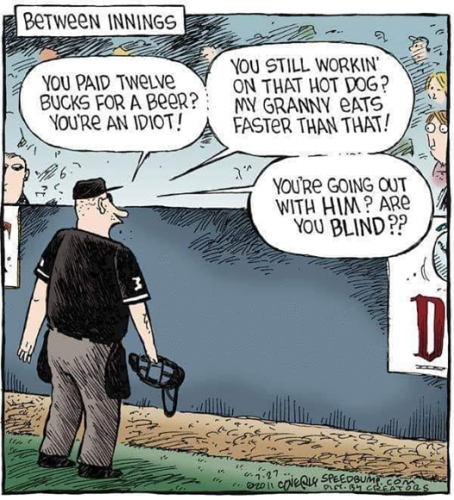The Man In Blue......Wow ... I cannot believe the amount of WRONG in this thread. From the actual play to the opinions afterwards.
The potential for an infield fly is determined by the situation, not the umpire. The umpire's failure to call it does not negate it.
I do not understand why this rule is difficult -- for umpires, for coaches, for players, for fans.
1.) Are there less than two outs? (That means ONE out or NO outs.) YES ... proceed to question 2. NO ... no infield fly.
2.) Are there runners on first and second base? (A runner may also be on third, but doesn't matter.) YES ... potential for an infield fly rule application exists -- PAUSE HERE AND INFORM YOUR PLAYERS -- now go on to question 3. NO ... no infield fly.
3.) The ball is in the air ... Can AN INFIELDER catch it with normal effort? Not DID they, not WILL they ... COULD they. Normal effort is something that will change based on conditions: age/talent level, winds and weather, the starting location of the infielder, etc.
Done. Easy. The only place any coach has room to complain is on the application of the umpire's judgment as to whether the ball was catchable or not. Nothing else is discretionary, so there is no reason to discuss.
Precisely why it is defined by the situation, not the umpire's actions, and you should be teaching your players and coaches that. It's tough to make the argument that nobody is paying attention to you, but it's your fault.






